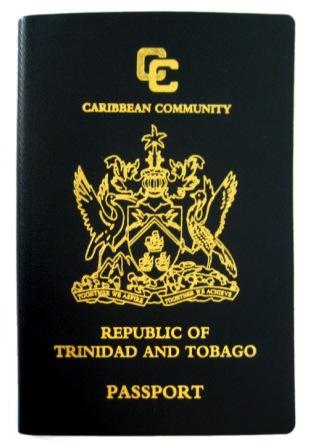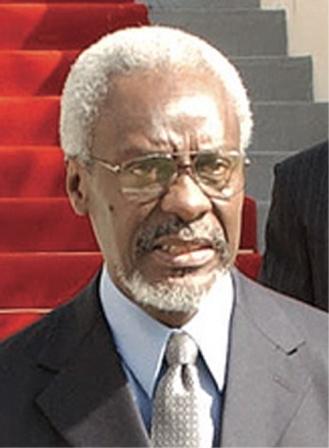The judgment in a case now proceeding through the Caribbean Court of Justice (CCJ) could prove to be a landmark in the movement of West Indians through each other’s countries.
Shanique Myrie, a Jamaican, alleges that on 14 March 2011, (then 22 years old), she was originally allowed entry into Barbados at Grantley Adams International Airport for a month when her passport was stamped, and that two hours later she was taken by a female immigration officer to a bathroom where she was allegedly “finger raped”, abused with foul language, threatened and then denied entry.
The government of Barbados is the defendant in the case. It has been accused of violating its obligations under the Revised Treaty of Chaguaramas (the CARICOM Treaty) and a Caribbean Community (CARICOM) Heads of Government decision in 2007. According to Myrie’s lawyers, denial of her right of entry was “unjustifiable, arbitrary and thus led to discrimination.”
The full trial will begin next month pitting the Barbados government, as defendant, against both Myrie and the Government of Jamaica which has intervened alongside her in the case. Three other Jamaican women have offered themselves as witnesses, saying that they too have been victims of improper treatment by Barbados immigration officials.
The Jamaican government’s argument is that its substantial legal interests in the case lies in the circumstance that any judgment rendered will establish a binding precedent for all CARICOM member states. In a preliminary hearing, in October 2012, the CCJ agreed.
Prior to the case going before the CCJ in April 2012, the Barbados government said that it had conducted its own inquiry and it upheld the position of the Immigration authorities that its officers had acted in accordance with the law and regulations. However, the Barbados government’s lawyers admitted to the CCJ hearing that the case was “arguable”. Hence, it is proceeding.
Since the establishment of CARICOM in 1973, tens of thousands of CARICOM nationals have travelled in its member states with no difficulty. However, a significant number have complained of discrimination by immigration officials at the point of entry of several Caribbean countries – some, even when they are travelling on Canadian, US and European Union passports.
All of this has raised questions about the value and relevance of CARICOM to the citizens of its 15 member countries. Indeed, these events have created resentment and an inclination to dismiss CARICOM as nothing but a government ‘talking shop’. The governments themselves have not done enough to address the problem, which if a solution is not found, will undermine the worth of CARICOM to many of its citizens.
Just recently, on 28 January, the highly-regarded, former Prime Minister of Jamaica, P J Patterson, publicly asked at a meeting of the Rotary Club in Guyana: “What purpose does the CARICOM Passport serve if travelling within the Region is still like an obstacle race”?
The CARICOM passport was introduced by many member governments in 2009 although the Bahamas and Haiti have not done so, and Monsterrat is prohibited from doing so because it remains a British colony.
However, the passport itself does not ease entry into the countries of CARICOM. While the word ‘Caricom’ is emblazoned on its cover, it is still a passport of the nation that issued it; it does not relieve the holder of the rigorous attention of immigration officers at CARICOM ports, nor does it, by itself, facilitate ease of entry.
The problem, of course, goes far beyond a CARICOM passport. It really strikes at the heart of what a ‘Community’ is about. In the European Union (EU) the 27 member states of the Community have EU passports but they also have, entrenched in their community law, freedom of their peoples to move to, and reside, work and study in, each other’s countries.
CARICOM governments will not overcome the problem of how nationals are treated at ports of entry until they deal with the more fundamental issue of perfecting the CARICOM Single Market and Economy (CSME) which provides for the free movement of goods, services and capital throughout the signatory member states (Bahamas is not a signatory).
Once all the legislative provisions are put in place, the free movement of people will be a natural consequence – just as it is in the EU, the Federation of the United States of America, and the Federation of Canada.
Rights of establishment, and arrangements for transfer of social security and medical benefits between CARICOM countries – all these have to be put in place before complete freedom of movement can occur, because without them the people of the host state would have to bear the cost of new migrants. The problem is that little or no progress has been made by governments in recent years to perfect the CSME.
The majority of CARICOM citizens would understand the need for the legislative and other requirements before there can be full freedom of movement. What they will not understand, however, is why their place of birth in a CARICOM country should, by itself, elicit unfriendliness and hostility.
Further, despite the fact that businesspeople and other professionals traverse the region everyday to transact business, CARICOM governments have not devised a way for them to apply for a stamp in their passports that would establish their bona fides and allow them access to a special line at Airports such as the ones reserved for diplomats and airline staff. Yet these business people are the ones who keep alive CARICOM trade in goods and services, and investment.
The Shanique Myrie case before the CCJ will help to determine the obligations of CARICOM member governments to the people of CARICOM countries who travel to – or through – other CARICOM States. The case is being watched by interested eyes and the judgment cautiously awaited.
(The writer is a Consultant, former senior Caribbean Ambassador and now Visiting Fellow, London University)
Responses and previous commentaries:www.sirronaldsanders.com






